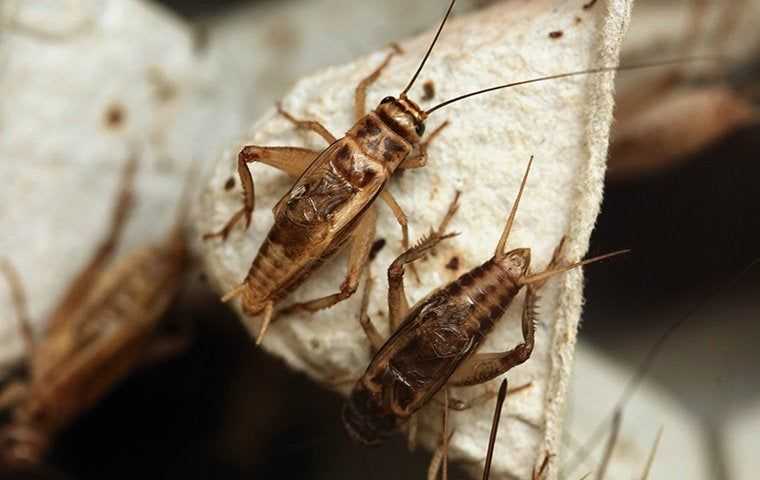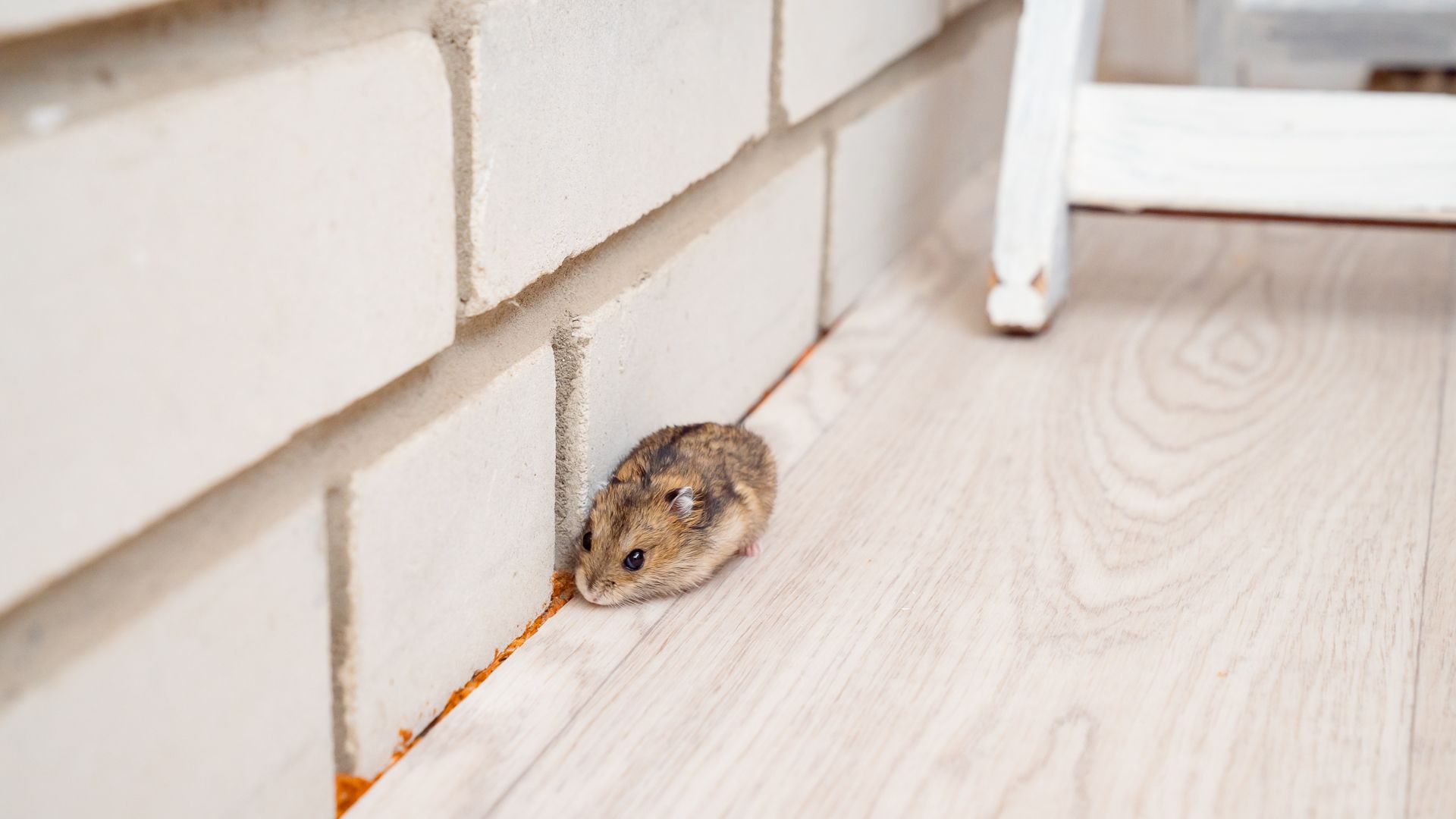
Cricket Identification & Prevention

What are crickets?
Crickets are scavenging omnivores that feed on decaying plants, fungi, and dead insects. Out in nature, they help to get rid of decaying organic matter.
There are many species of crickets that live in our area, but one of the most common and problematic on our Alabama properties is the camel cricket.
Camel crickets are light to dark brown, and they can be mottled and have some dark banding. They got their name because of their humpbacked shape. Like other crickets, camel crickets have large, powerful legs they use to jump, helping them escape predators. While some crickets make a chirping sound, camel crickets do not.
Are crickets dangerous?
Though they appear harmless, crickets are dangerous pests to have in our houses. Crickets live in areas of decaying debris and carry on their bodies bacteria and parasites that can cause illness.
Their feeding habits also cause damage when they are in our homes; they will contaminate food and chew through fabrics damaging furniture, bedding, clothing, and curtains.
When crickets are in your home, if you accidentally come across them and disturb them, they may jump quickly out of the way and startle people. Sharing a house with crickets can be unnerving.
Why do I have a cricket problem?
Crickets are not tiny insects, but they are small and can take advantage of any small spaces in the exterior of homes to move indoors. Typically hot, dry weather drives crickets indoors. Things like leaky pipes, poor ventilation, and dripping air conditioners will attract crickets to your home.
Crickets are also a popular food source for many pets. A cricket infestation can also develop when crickets purchased from the pet store escape and hide in your home.
Where will I find crickets?
Camel crickets and most other crickets prefer damp, dark environments.
Outside, camel crickets live in leaf litter, under landscaping ties, within tree stumps, in hollow logs, or under firewood or leaf piles.
When crickets are in our homes, they gather in places they mimic where they live outside; damp, dark, cool spaces. Basements, bathrooms, crawl spaces, closets, cabinets under sinks, and garages are examples of indoor spaces that can house crickets.
How do I get rid of crickets?
Get rid of crickets from your Alabama home with the help of the local pest control experts at EnviroCare.
Our home pest control services are not only effective but environmentally responsible. Our detailed and customized services will solve the problem you are experiencing with crickets and other household pests. Our professionals will implement regular, customized services to keep them from returning. Your home is your sanctuary; don't let crickets ruin that for you and your family.
To learn which of our services is a perfect fit for your home, reach out to EnviroCare today.
How can I prevent crickets in the future?
Use the following prevention tips to keep crickets from moving from your yard and into your home:
- Leave a barrier between grass, plants, shrubs, bushes, and your foundation.
- Keep your grass cut short.
- Instead of using wood mulch that traps moisture, use a non-organic material.
- Seal spaces under exterior doors and around windows and doors.
- Address moisture problems in and around your home.
- Keep basements, crawl spaces, and other storage areas free of debris where crickets can hide.
Let's work together to protect your family, yard, and home against crickets and other common household pests. Contact us today to get professional pest control services for your Birmingham property.

.2510090520274.jpg)
.2507230854148.jpg)
.2504151357080.jpg)